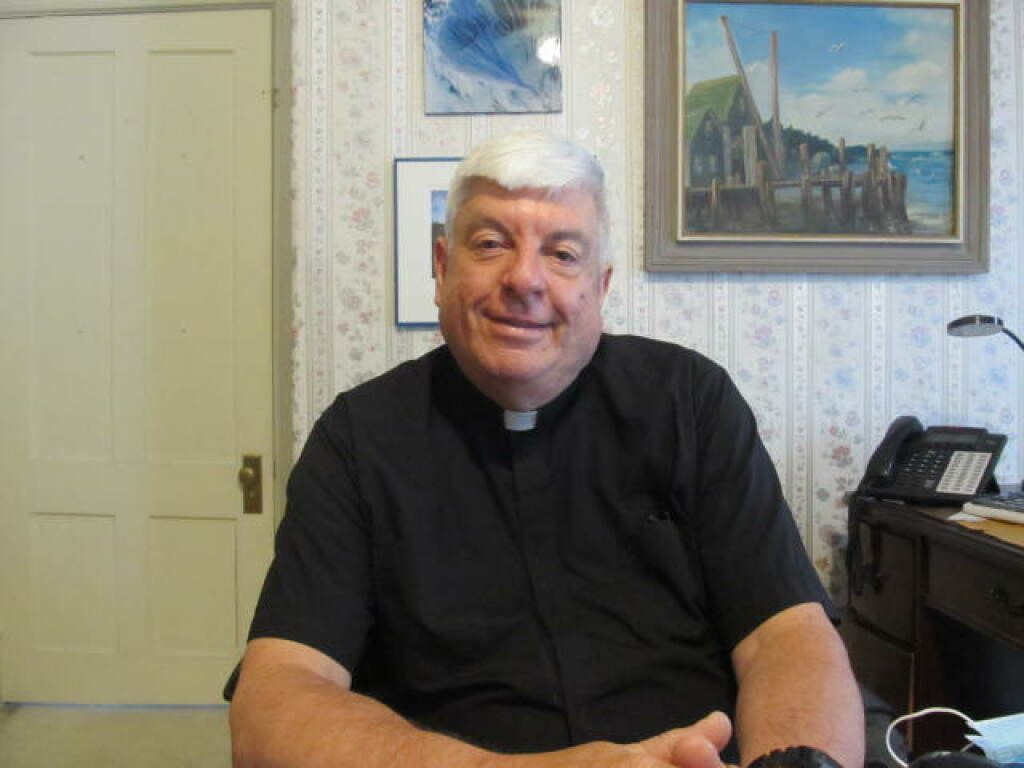 Working with God, the Master Sculptor
Working with God, the Master Sculptor
Homily for Ash Wednesday
February 17, 2021
There is a story about two men, both Italian sculptors and contemporaries, named Donatello and Michelangelo. One day Donatello received delivery of a huge block of marble. After examining it carefully, Donatello rejected the marble because it was too flawed and cracked for him to use.
Now this was long before forklifts and hydraulic lifts, so the workmen moved the heavy load by using a series of log rollers. Rather than struggle back to the quarry, the quick-thinking haulers decided to deliver it down the street to Michelangelo. After all, he was known to be a little absent-minded. He might not realize that he had not ordered a three-ton block of marble.
When Michelangelo inspected the marble, he saw the same cracks and flaws as did Donatello. But he also saw the block as a challenge to his artistic skills. It became a personal challenge he could not pass up. So Michelangelo accepted the block of marble that Donatello had already rejected as too flawed and too cracked to be of any use. Michelangelo proceeded to carve from that seemingly useless block of marble what is considered to be one of the world’s greatest art treasures—the statue “David.”
Now, we can look at Ash Wednesday in gloomy terms: the old, traditional formula reminds us, “Remember that you are dust and unto dust you shall return.” And, of course, we know that’s true; one day death will come to all of us. But that is of little help if it paralyzes us with fear.
On the other hand we can look at this Lenten Season as having more to do with how we live, than with the fact that we will die. One article I read on the subject suggested that the biblical call to repent isn’t like the threat that many of us heard years ago: “Wait till your father gets home!” when we did something wrong. God wants to be more to us than an answer to a threat. The article suggested we look at it this way: “an invitation to make room in our hearts and lives for a God who wants to fill up our empty spaces and doesn’t take no for an answer.”
In other words, God is like Michelangelo, who sees the cracks and flaws in us, but wants to work with us to bring out the masterpiece that is there. We get to that masterpiece by chipping away at the flaws. And there are three traditional tools in the sculptor’s studio.
Fasting: can we let go of our reliance on things we really don’t need so we can rely more on God? It’s not necessarily desserts so we can lose weight, but something more substantial: talking about people, resentment and refusal to forgive, insisting on always being right or having our own way. What do we need to chip away at?
Almsgiving (charitable giving): there are others who are lacking even basic necessities, and in reaching out to help them in their brokenness, we help to heal our own. It’s a great way to take the spotlight off our own ego.
Prayer: spending some quality time with the one who created us, knows us better than we know ourselves, and loves us more than we can imagine. It is through prayer that we allow the master Sculptor to help us in the chipping away at the cracks and flaws that keep us from being fully who the bible says we are: persons made in the image and likeness of God.
May you have a blessed Lent.
You might also like
Father's Homilies




